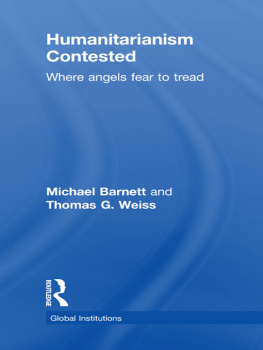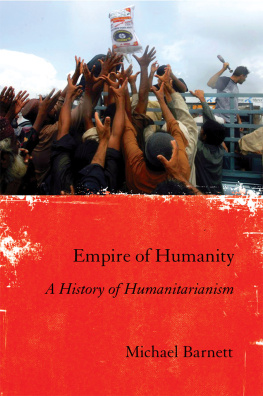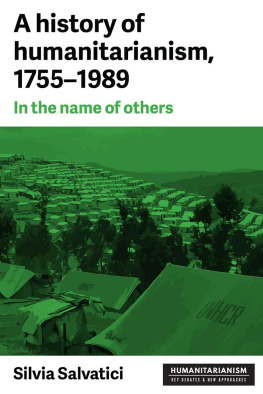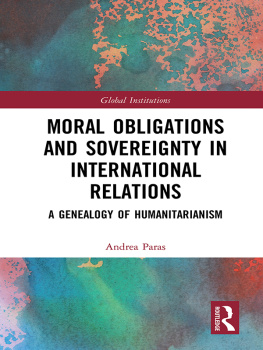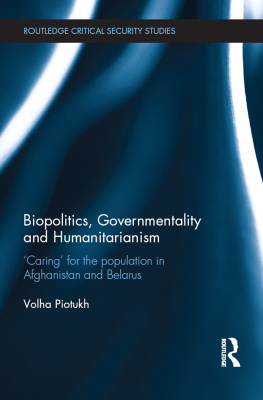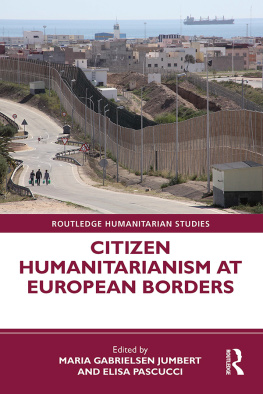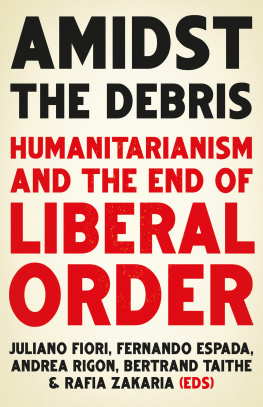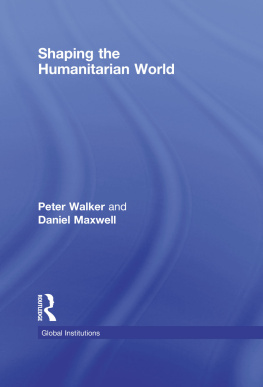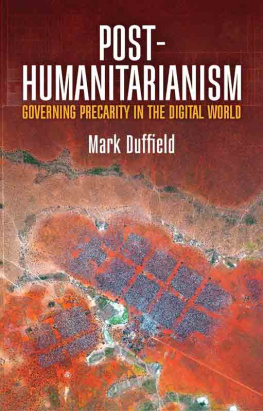Humanitarianism Contested
This book provides a succinct but sophisticated understanding of humanitarianism, and insight into the ongoing dilemmas and tensions that have accompanied it since its origins in the early nineteenth century. Combining theoretical and historical exposition with a broad range of contemporary case studies, the book:
surveys the evolution of humanitarianism, beginning with the early nineteenth century and continuing to todays challenge of post-conflict reconstruction and saving failed states;
explains how humanitarianism has exploded in scope, scale, and significance;
presents an overview of the contemporary humanitarian sector, including briefly who the key actors are, how they are funded, and what they do with their money;
analyzes the ethical dilemmas confronted by humanitarian organizations, not only in the abstract but also, and most importantly, in real situations and when lives are at stake; and
examines how humanitarianism poses fundamental ethical questions regarding the kind of world we want to live in, what kind of world is possible, and how we might get there.
An accessible and engaging work by two of the leading scholars in the field, Humanitarianism Contested is essential reading for all those concerned with the future of human rights and international relations.
Michael Barnett is University Professor of International Affairs and Political Science at the George Washington University.
Thomas G. Weiss is Presidential Professor of Political Science at The Graduate Center of The City University of New York and Director of the Ralph Bunche Institute for International Studies.
Routledge Global Institutions
Edited by Thomas G. Weiss
The CUNY Graduate Center, New York, USA
and Rorden Wilkinson
University of Manchester, UK
About the series
The Global Institutions series is designed to provide readers with comprehensive, accessible, and informative guides to the history, structure, and activities of key international organizations as well as books that deal with topics of key importance in contemporary global governance. Every volume stands on its own as a thorough and insightful treatment of a particular topic, but the series as a whole contributes to a coherent and complementary portrait of the phenomenon of global institutions at the dawn of the millennium.
Books are written by recognized experts, conform to a similar structure, and cover a range of themes and debates common to the series. These areas of shared concern include the general purpose and rationale for organizations, developments over time, membership, structure, decision-making procedures, and key functions. Moreover, current debates are placed in historical perspective alongside informed analysis and critique. Each book also contains an annotated bibliography and guide to electronic information as well as any annexes appropriate to the subject matter at hand.
The volumes currently published are:
51 Humanitarianism Contested (2011)
Where angels fear to tread
by Michael Barnett (George Washington University) and Thomas G. Weiss
(The CUNY Graduate Center)
50 The Organization of American States (2011)
Global governance away from the media
by Monica Herz (Institute of International Relations, Catholic University,
Rio de Janeiro)
49 Non-Governmental Organizations in World Politics (2011)
The construction of global governance
by Peter Willetts (City University, London)
48 The Forum on China-Africa Cooperation (FOCAC) (2011)
by Ian Taylor (University of St. Andrews)
47 Global Think Tanks, Policy Networks, and Governance (2011)
by James G. McGann (University of Pennsylvania) with Richard Sabatini
46 United Nations Educational, Scientific and Cultural Organization (UNESCO) (2011)
Creating norms in a complex world
by J. P. Singh (Georgetown University)
45 The International Labour Organization (2011)
Coming in from the cold
by Steve Hughes (Newcastle University) and Nigel Haworth (University of Auckland)
44 Global Poverty (2010)
How global governance is failing the poor
by David Hulme (University of Manchester)
43 Global Governance, Poverty, and Inequality (2010)
Edited by Jennifer Clapp (University of Waterloo) and Rorden Wilkinson (University of Manchester)
42 Multilateral Counter-Terrorism (2010)
by Peter Romaniuk (John Jay College of Criminal Justice, CUNY)
41 Governing Climate Change (2010)
by Peter Newell (University of East Anglia) and Harriet A. Bulkeley
(Durham University)
40 The UN Secretary-General and Secretariat (2nd edition, 2010)
by Leon Gordenker (Princeton University)
39 Preventive Human Rights Strategies in a World of Acute Threats and Challenges (2010)
by Bertrand G. Ramcharan (Geneva Graduate Institute of International and
Development Studies)
38 African Economic Institutions (2010)
by Kwame Akonor (Seton Hall University)
37 Global Institutions and the HIV/AIDS Epidemic (2010)
Responding to an international crisis
by Franklyn Lisk (University of Warwick)
36 Regional Security (2010)
The capacity of international organizations
by Rodrigo Tavares (United Nations University)
35 The Organisation for Economic Co-operation and Development (2009)
by Richard Woodward (University of Hull)
34 Transnational Organized Crime (2009)
by Frank Madsen (University of Cambridge)
33 The United Nations and Human Rights (2nd edition, 2009)
A guide for a new era
by Julie A. Mertus (American University)
32 The International Organization for Standardization (2009)
Setting standards
by Craig N. Murphy (Wellesley College) and JoAnne Yates (Massachusetts Institute of Technology)
31 Shaping the Humanitarian World (2009)
by Peter Walker (Tufts University) and Daniel G. Maxwell (Tufts University)
30 Global Food and Agricultural Institutions (2009)
by John Shaw
29 Institutions of the Global South (2009)
by Jacqueline Anne Braveboy-Wagner (City College of New York, CUNY)
28 International Judicial Institutions (2009)
The architecture of international justice at home and abroad
by Richard J. Goldstone (Retired Justice of the Constitutional Court of South Africa) and Adam M. Smith (Harvard University)
27 The International Olympic Committee (2009)
The governance of the Olympic system
by Jean-Loup Chappelet (IDHEAP Swiss Graduate School of Public Administration) and Brenda Kbler-Mabbott
26 The World Health Organization (2009)
by Kelley Lee (London School of Hygiene and Tropical Medicine)
25 Internet Governance (2009)
The new frontier of global institutions
by John Mathiason (Syracuse University)
24 Institutions of the Asia-Pacific (2009)
ASEAN, APEC, and beyond
by Mark Beeson (University of Birmingham)
23 UNHCR (2008)
The politics and practice of refugee protection into the twenty-first century
by Gil Loescher (University of Oxford), Alexander Betts (University of Oxford), and James Milner (University of Toronto)
22 Contemporary Human Rights Ideas (2008)
by Bertrand G. Ramcharan (Geneva Graduate Institute of International and Development Studies)
21 The World Bank (2008)
From reconstruction to development to equity

